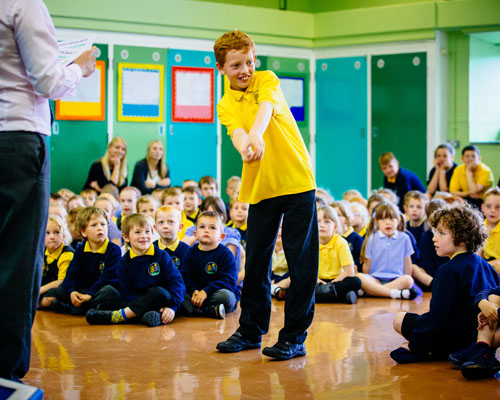Class Teacher: Miss Susie Frankland
Higher Level Teaching Assistant: Miss Chloe Turner
Teaching Assistant: Mrs Corrina Morgan
PE Day: Thursday
Outdoor Learning Day: Monday
Homework: For all areas of your child’s development, spending time to talk and play with your child is the most valuable thing you can do. If you have any great adventures or they have achievements they wanted to share, please upload these on to Tapestry so we can celebrate these and talk about them in class.
For maths, talk about numbers, shapes and patterns in your environment. Encourage your child to count with you in real life contexts e.g. use setting the table as an opportunity to develop maths, ‘How many forks do we need?’ How many knives?’. Encourage talk using mathematical vocabulary such as heavier, lighter, longer, shorter.
–
Download the 1-Minute Maths app here. It is a free app from White Rose Maths and supports the learning we do in school. Reception children should use the subitising game first and could progress to the addition and subtraction games in the second half of the year. As an alternative to this, you could use small toys, objects or number cards.
–
Reading: Please enjoy reading and sharing books with your child at least 4 times a week (this can be for as little as 5-10 minutes). In time, children will bring home books for them to practise reading sounds and words to you at home. Little and often with lots of praise and enthusiasm is key to supporting your child’s reading development. Encourage them to sound out words and blend them together. Use any opportunity to get them to practise blending words e.g. Please put on your c-oa-t
–
Writing: Encourage your child to use their laminated name card to recognise the letters in their name and to eventually copy their name. In Literacy, we read fiction, non-fiction and poetry books over the year and we usually focus on a book per week. During this time, we discuss characters and story settings or facts and information and as the year goes on, build up to writing words, sentences and then composing own sentences about what we are learning.
–
Other areas: Encourage your child’s independence. This will be different for each child, but areas you could look at out, using a knife and fork, to be independent in their toileting, getting dressed and undressed themselves, handling buttons and zips. You could also give them jobs at home like carrying their own things to and from school, laying the table or tidying up a room.
–
Keep active by going on walks, going to the park, swimming, climbing. Physical activity helps them to develop strength and control in a variety of areas and it can help children manage their emotions too and boost self-esteem, confidence and resilience. Fine motor activities are fantastic too – play dough is a brilliant tool for finger strength and imagination!


